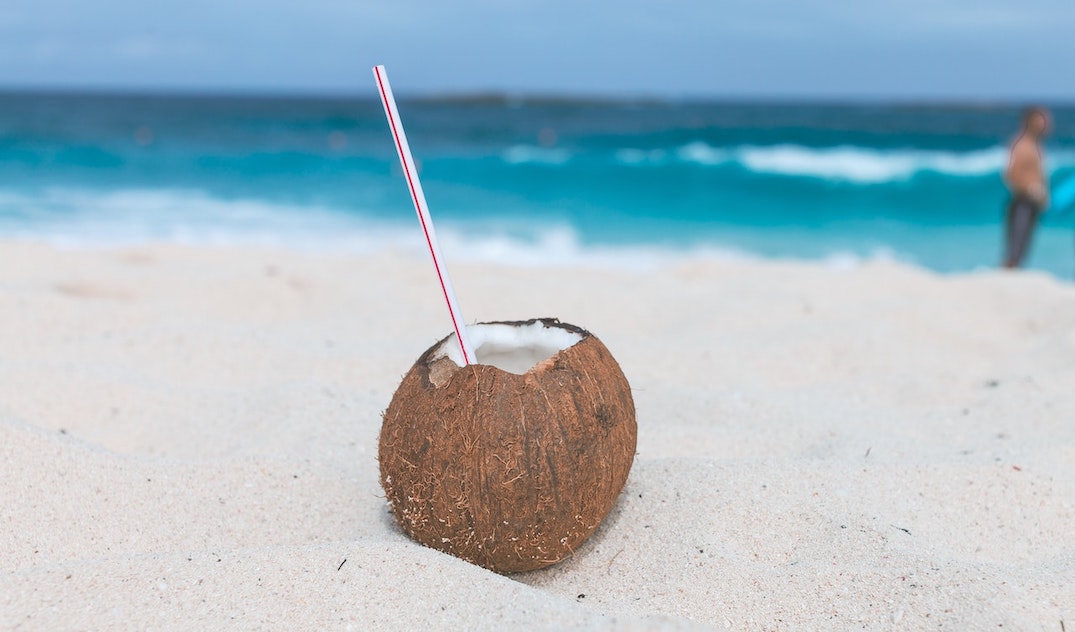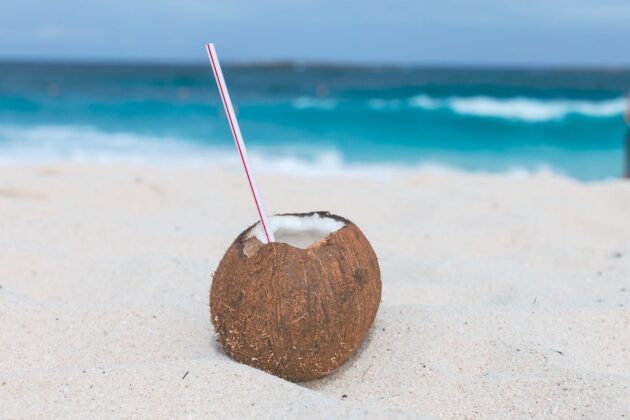Postpartum Diet Plan: Best Foods to Eat After Giving Birth
Giving birth is hard on your body, and so is taking care of a newborn. The best gift you can give yourself now is to eat in ways that promote recovery after pregnancy. While there was a lot of focus on eating well during pregnancy, nutrition still matters in the postpartum period of days, weeks, and even months after having your baby.
You may have questions about your postpartum diet, including how to begin. What are the best foods to eat after giving birth? How can I make sure I’m replenishing my body and eating correctly for breastfeeding?
This guide covers what a healthy postpartum diet looks like and why having a postpartum diet plan is essential. We will also talk about how a postpartum nutritionist can help you follow these tips, lose the ideal amount of baby weight, and feel normal again.
Postpartum diet plan guidelines
The focus of your diet in the first few weeks after giving birth shouldn’t be to lose weight.
“After birth, nutrition is all about recovery and repair,” says Carlyn Rosenblum, MS, RD, one of Zaya Care’s registered postpartum nutritionists. “You’ll want to emphasize foods that help your body recover from the physical and emotional stressors of childbirth.”
There are certain guidelines to follow, such as:
Eat well-balanced meals
Your diet should still be well-balanced and healthy after giving birth.
You should consume a variety of healthy carbohydrates in the form of whole grains, fruits, and multi-colored vegetables, along with protein found in lean meats, poultry, fish, nuts, and seeds.
Healthy oils include polyunsaturated fats found in nuts, seeds, and oils (safflower, grapeseed, and canola oils).
The Mediterranean diet is a great example of this balance and ideal for weight maintenance and overall health.
Continue prenatal vitamins
Even though you’ve been taking prenatal vitamins while pregnant, your stores of vitamins and minerals may still be depleted after sharing these nutrients with your growing baby.
By continuing to take these vitamins for a minimum of six weeks after giving birth, you can recover the essential vitamins and minerals you may have lost in pregnancy.

Get Postpartum Support from a Registered Dietitian
Insurance Accepted: 90% of Zaya Care patients pay $0 for visits with an RD
Avoid empty calories
Empty calories are never ideal, but after giving birth, there are even more reasons to avoid them. Processed carbs that have empty calories include cakes, pastries, pies, and candy. These will contribute to postpartum weight gain without providing nutrients.
Avoid alcohol
Alcohol is a source of empty calories so it should be avoided whether you are breastfeeding or not.
“Breastfeeding moms, however, need to be especially conscious of when and how much alcohol they consume,” says Rosenblum. “Alcohol can pass into breast milk and newborn livers are not equipped to break it down.”
In most cases, only a small amount of alcohol will pass through the breast milk to your baby. For example, if you have a glass of wine or a beer, it is generally safe to breastfeed your baby if you wait about two hours before nursing.
The alcohol will naturally metabolize out of your breast milk, so there is no need to pump and dump (unless it is for comfort).
The general rule of thumb is this: if you are sober enough to drive a car, you can breastfeed.
Avoid high mercury fish
Most fish are perfectly safe to eat after pregnancy. Cod, flounder, haddock, catfish, tilapia, trout, pollock, and salmon are excellent choices that are low in mercury. Shrimp, sardines, crawfish, crab, oysters, and crab are also good choices. If you catch your own fish, check the current fish safety guidelines.
The fish to avoid are the larger predator fish, including swordfish, shark, marlin, king mackerel, orange roughie, bigeye tuna, and tilefish. These fish are high in mercury which can affect your baby’s nervous system development if you’re breastfeeding. Canned tuna is okay to eat a few times a week—canned light and skipjack are considered “best choices.”
>> See which foods you should avoid while breastfeeding
Moderate caffeine
For breastfeeding moms, moderate caffeine intake is generally safe. But Rosenblum suggests limiting coffee to no more than 300mg per day. “That’s about two cups of coffee,” she says, “and it’s best to avoid other beverages with excessive amounts of caffeine, like energy drinks.”
Begin tracking your weight
You will lose weight in the first few weeks after giving birth; however, this shouldn’t be from dieting. Instead, your postpartum weight loss will mostly come from losing water weight. Because you still need calories and nutrients, especially if you’re breastfeeding, you shouldn’t skimp on eating balanced meals daily.
If you’re interested in losing the stores of fat you needed to gain during pregnancy, you should instead consider ramping up your exercise, even if it means extra walking. Once your doctor greenlights your health at six weeks postpartum, you can begin to do more intensive forms of exercise—swimming, cycling, hiking, and more.
Remain hydrated
Hydration is certainly important if you are breastfeeding; however, you will still benefit from drinking extra fluids even if you’re not nursing. Water is calorie-free but will fill you up between meals and discourage snacking on junk food.
Try drinking only water or sugar-free beverages with natural flavorings rather than sodas, energy drinks, and other beverages high in sugar.
You can learn more about drinks that can increase breast milk supply here.
Avoid peppermint
In breastfeeding mothers, peppermint can decrease milk supply and may also cause digestive issues in babies. It is recommended that if you are breastfeeding, you avoid consuming large amounts of peppermint including tea or essential oil.
Add calories for breastfeeding
You will definitely need to eat extra calories when breastfeeding and make sure to eat extra nutrients for your nursing baby.
Consume 2250 to 2900 calories daily while breastfeeding, depending on your activity level. This is about 450 to 500 calories more than you’d normally need. The MyPlate App from the USDA can help you plan meals.
We also have a full guide to creating a breastfeeding meal plan here, including a free downloadable PDF.
>> Find a postpartum nutritionist that accepts your insurance
Best foods to eat after giving birth
The foods that matter most after giving birth are typically fresh, whole, and healthy. There are many foods in each category to choose from, so it should be easy to find foods you like. Remember that the food you make at home has the best chance of being healthy for you.
Here are some of the best foods to eat after giving birth:
- Whole grains. Whole grains have the bran and germ retained during the making of the grain product. When you keep the whole grain, you get more iron, fiber, and B vitamins for enhanced health. Whole-grain bread and brown rice are excellent choices. Rosenblum also suggests oats: “Oats are rich in iron, fiber, and complex carbohydrates, which can help to support stable blood sugar. This is important in the postpartum period to support better energy and hormone balance.”
- Vegetables. All types of vegetables are great for your postpartum diet, including leafy greens, peppers, cauliflower, broccoli, and starchy vegetables like potatoes, sweet potatoes, and pumpkin. Varieties in color mean you’ll get a wider range of healthy plant-based nutrients.
- Fruits. All fruits are good to eat but again, variety is important. Consume fresh berries, grapes, and citrus fruits whole if possible. Whole fruits provide more fiber and will fill you up more than the juices made from them.
- Lean protein sources. Lean proteins include poultry, fish, and lean cuts of beef and pork. Avoid fatty meats if you can. Non-meat protein sources include beans (soybeans, kidney beans, and white beans) or lentils. These are naturally low in fat.
- Healthy fats. Healthy fats include mono- and polyunsaturated fats. These are linked to better mental and physical health and prevent heart disease. The best sources of these fats are avocados, fish, nuts, and seeds (walnuts, chia seeds, and flaxseeds). “Nuts also contain nutrients such as magnesium, zinc, and vitamin E that support postpartum recovery,” says Rosenblum. Plant oils, including canola and soybean oil, are also very healthy.
- Low/no fat dairy. Dairy products are packed with vitamins. The best options are low-fat yogurt, low-fat sour cream, and fat-free (skimmed) milk. From these, you will gain calcium and vitamin D for healthy bones and teeth.
The way you prepare your meals matters, too. Avoid fried foods or those laden with butter or added sugar or salt. Broiled, grilled, and baked foods have the nutrients you need without all of the added fat that you don’t need.

Get Postpartum Support from a Registered Dietitian
Insurance Accepted: 90% of Zaya Care patients pay $0 for visits with an RD
Sample postpartum diet meal plan
While your ideal postpartum diet depends on your unique situation and needs, we put together a sample meal plan as an example of what one new mom may eat:
Breakfast:
- 1 cup of oatmeal cooked with water or low-fat milk
- 1 sliced banana
- 1 tbsp of chia seeds
- 1 hard-boiled egg
Snack:
- 1 apple
- 1 oz of almonds
Lunch:
- 4 oz of grilled chicken breast
- 1 cup of roasted sweet potato
- 1 cup of sautéed kale
- 1 tsp of olive oil
Snack:
- 1 cup of sliced cucumber
- 2 tbsp of hummus
Dinner:
- 4 oz of grilled salmon
- 1 cup of quinoa
- 1 cup of roasted broccoli
- 1 tsp of olive oil
Snack:
- 1 cup of sliced strawberries
- 1 oz of dark chocolate (at least 70% cocoa)
Remember to drink plenty of water throughout the day and, if you need more calories, you can add an extra snack or increase the portion sizes.
This sample postpartum diet plan provides a balanced mix of protein, healthy fats, and complex carbohydrates, which can help you feel satisfied and energized while supporting postpartum weight loss and breastfeeding.
Remember, it’s important to consult with your doctor and, if you have one, your nutritionist about how much you should be eating, what you should be eating, and more.
>> Find a postpartum nutritionist that accepts your insurance
Essential vitamins and minerals you need after giving birth
Your baby likely borrowed from your vitamin and mineral stores during pregnancy. The postpartum period is when you should build back those depleted nutrient stores.
“The top two nutrients I think women need during the initial postpartum period are collagen and omega-3s,” says Rosenblum. “Collagen protein helps to aid tissue repair and healing. Omega-3s are healthy fats that help to support anti-inflammation in the body.”
Here are the nutrients that are most important in the postpartum period:
- Collagen. Collagen helps make new tissue and strengthen existing tissue, so it’s important to postpartum recovery. It is found naturally in meat and fish, but there are plant foods that contain substances that help our bodies make it as well.
- Omega-3 fatty acids. These are great for your heart and brain health and reduce depression. You and your breastfed baby need these healthy fats found in fish like salmon, nuts, and seeds.
- Calcium. Calcium builds bone and teeth health. Women often have extra dental caries after the stress of giving birth. By building your calcium stores, you may be able to strengthen your tooth enamel and prevent this problem. Your baby’s bones and teeth need this calcium, too, if you are nursing.
- Iron. Iron builds back blood hemoglobin levels, among other things. Iron is stored in your body for later use; your stores are probably depleted by the end of pregnancy but can be regained through healthy eating. You can get your needed iron through leafy greens and lean meats.
- Iodine. Iodine is needed for thyroid health. To reduce the chances of low thyroid function after giving birth, you should consume foods high in this mineral. Your best source of iodine is iodized salt; however, fish and other seafood products are also excellent iodine sources.
- Choline. Choline is excellent for brain health. If you’re nursing, your baby will need this nutrient. Foods that are high in choline include fish, meat, eggs, poultry, and dairy products.
- Vitamin D. Vitamin D is essential for bone health, immunity, and other essential functions. You and your baby need it for some of the same reasons you need calcium. Sources include salmon, fortified milk, cheese, orange juice, and mushrooms.
- Vitamin B12. Vitamin B12 is only found in animal products. You will need to supplement with this vitamin if you don’t eat meat or other animal products like cheese and dairy products.
- Folate. Folate is one of the B vitamins found in leafy greens, grains, seafood, nuts, legumes, peas, dairy, meats, eggs, and fruits. You need this at any time of your life but especially after having your stores depleted by pregnancy. Take supplements if you are not able to eat enough of the needed folate-containing foods.
>> Find a postpartum nutritionist that accepts your insurance
Why a good postpartum diet plan is essential
A good postpartum diet helps your body recover from delivery and restore the nutrients you lost during pregnancy. It will also benefit your baby if you’re breastfeeding.
A postpartum diet plan can:
- Help the body heal. The body heals best with vitamins and minerals that promote the healing of tissues and reduce inflammation.
- Support lactation. Obviously, you need fluids for nursing so extra water is essential. You also need to continue to support your baby’s wellness and development with extra calories and food that contains all of the essential vitamins and minerals for your baby’s needs.
- Boost energy. Having a new baby is exhausting. When you are already at risk for fatigue and low energy, you will worsen your situation by having a poor diet. Boost your diet with foods that have plenty of B vitamins for enhanced levels of energy.
- Help with sleep. Sleep is doubly hard when simultaneously recovering from childbirth and caring for your new baby. Foods high in tryptophan will enhance sleep and improve wellness. Having several small but balanced meals daily will help your metabolism settle down naturally for sleep.
- Decrease chances of postpartum depression. Postpartum depression appears to be partially prevented by having enhanced nutrition. Foods high in selenium, zinc, vitamin D, and possibly B vitamins and polyunsaturated fats may help your nervous system recover after childbirth.
- Help with healthy postpartum weight loss. Most women have 10-25 pounds of pregnancy weight to lose after delivery to get back to their pre-pregnancy weight. Losing those extra pounds can take a full year, but it is critical to your health and the health of your possible future pregnancies.
Why you should consider working with a postpartum nutritionist after giving birth
A postpartum nutritionist is a specialist in the field of advanced nutrition who also has training and experience with women who have recently given birth.
Carlyn Rosenblum MS, RD, one of Zaya’s registered dietitian nutritionists says the postpartum period “can often be a confusing and complicated time for nutrition.” She takes a science-based, personalized approach to health to make this process easier through care and guidance.
A postpartum nutritionist, like Rosenblum, can evaluate your nutritional status in the context of your lifestyle and individual needs. You can work with them to develop meal plans and shopping lists. They can also help with issues such as painful postpartum gas or postpartum loss of appetite.
If you have any concerns or questions, your nutritionist can answer them and help you in your recovery from childbirth using nutritional strategies. Breastfeeding moms can particularly benefit from postpartum nutritional advice.
If you’re interested in working with someone like Carlyn, we can help you find a postpartum nutritionist that accepts your insurance here at Zaya Care. Simply browse through our network of licensed providers, find one that fits your needs, and book completely online!

Get Postpartum Support from a Registered Dietitian
Insurance Accepted: 90% of Zaya Care patients pay $0 for visits with an RD
Giving birth is hard on your body, and so is taking care of a newborn. The best gift you can give yourself now is to eat in ways that promote recovery after pregnancy. While there was a lot of focus on eating well during pregnancy, nutrition still matters in the postpartum period of days, weeks, and even months after having your baby.
You may have questions about your postpartum diet, including how to begin. What are the best foods to eat after giving birth? How can I make sure I’m replenishing my body and eating correctly for breastfeeding?
This guide covers what a healthy postpartum diet looks like and why having a postpartum diet plan is essential. We will also talk about how a postpartum nutritionist can help you follow these tips, lose the ideal amount of baby weight, and feel normal again.
Postpartum diet plan guidelines
The focus of your diet in the first few weeks after giving birth shouldn’t be to lose weight.
“After birth, nutrition is all about recovery and repair,” says Carlyn Rosenblum, MS, RD, one of Zaya Care’s registered postpartum nutritionists. “You’ll want to emphasize foods that help your body recover from the physical and emotional stressors of childbirth.”
There are certain guidelines to follow, such as:
Eat well-balanced meals
Your diet should still be well-balanced and healthy after giving birth.
You should consume a variety of healthy carbohydrates in the form of whole grains, fruits, and multi-colored vegetables, along with protein found in lean meats, poultry, fish, nuts, and seeds.
Healthy oils include polyunsaturated fats found in nuts, seeds, and oils (safflower, grapeseed, and canola oils).
The Mediterranean diet is a great example of this balance and ideal for weight maintenance and overall health.
Continue prenatal vitamins
Even though you’ve been taking prenatal vitamins while pregnant, your stores of vitamins and minerals may still be depleted after sharing these nutrients with your growing baby.
By continuing to take these vitamins for a minimum of six weeks after giving birth, you can recover the essential vitamins and minerals you may have lost in pregnancy.

Get Postpartum Support from a Registered Dietitian
Insurance Accepted: 90% of Zaya Care patients pay $0 for visits with an RD
Avoid empty calories
Empty calories are never ideal, but after giving birth, there are even more reasons to avoid them. Processed carbs that have empty calories include cakes, pastries, pies, and candy. These will contribute to postpartum weight gain without providing nutrients.
Avoid alcohol
Alcohol is a source of empty calories so it should be avoided whether you are breastfeeding or not.
“Breastfeeding moms, however, need to be especially conscious of when and how much alcohol they consume,” says Rosenblum. “Alcohol can pass into breast milk and newborn livers are not equipped to break it down.”
In most cases, only a small amount of alcohol will pass through the breast milk to your baby. For example, if you have a glass of wine or a beer, it is generally safe to breastfeed your baby if you wait about two hours before nursing.
The alcohol will naturally metabolize out of your breast milk, so there is no need to pump and dump (unless it is for comfort).
The general rule of thumb is this: if you are sober enough to drive a car, you can breastfeed.
Avoid high mercury fish
Most fish are perfectly safe to eat after pregnancy. Cod, flounder, haddock, catfish, tilapia, trout, pollock, and salmon are excellent choices that are low in mercury. Shrimp, sardines, crawfish, crab, oysters, and crab are also good choices. If you catch your own fish, check the current fish safety guidelines.
The fish to avoid are the larger predator fish, including swordfish, shark, marlin, king mackerel, orange roughie, bigeye tuna, and tilefish. These fish are high in mercury which can affect your baby’s nervous system development if you’re breastfeeding. Canned tuna is okay to eat a few times a week—canned light and skipjack are considered “best choices.”
>> See which foods you should avoid while breastfeeding
Moderate caffeine
For breastfeeding moms, moderate caffeine intake is generally safe. But Rosenblum suggests limiting coffee to no more than 300mg per day. “That’s about two cups of coffee,” she says, “and it’s best to avoid other beverages with excessive amounts of caffeine, like energy drinks.”
Begin tracking your weight
You will lose weight in the first few weeks after giving birth; however, this shouldn’t be from dieting. Instead, your postpartum weight loss will mostly come from losing water weight. Because you still need calories and nutrients, especially if you’re breastfeeding, you shouldn’t skimp on eating balanced meals daily.
If you’re interested in losing the stores of fat you needed to gain during pregnancy, you should instead consider ramping up your exercise, even if it means extra walking. Once your doctor greenlights your health at six weeks postpartum, you can begin to do more intensive forms of exercise—swimming, cycling, hiking, and more.
Remain hydrated
Hydration is certainly important if you are breastfeeding; however, you will still benefit from drinking extra fluids even if you’re not nursing. Water is calorie-free but will fill you up between meals and discourage snacking on junk food.
Try drinking only water or sugar-free beverages with natural flavorings rather than sodas, energy drinks, and other beverages high in sugar.
You can learn more about drinks that can increase breast milk supply here.
Avoid peppermint
In breastfeeding mothers, peppermint can decrease milk supply and may also cause digestive issues in babies. It is recommended that if you are breastfeeding, you avoid consuming large amounts of peppermint including tea or essential oil.
Add calories for breastfeeding
You will definitely need to eat extra calories when breastfeeding and make sure to eat extra nutrients for your nursing baby.
Consume 2250 to 2900 calories daily while breastfeeding, depending on your activity level. This is about 450 to 500 calories more than you’d normally need. The MyPlate App from the USDA can help you plan meals.
We also have a full guide to creating a breastfeeding meal plan here, including a free downloadable PDF.
>> Find a postpartum nutritionist that accepts your insurance
Best foods to eat after giving birth
The foods that matter most after giving birth are typically fresh, whole, and healthy. There are many foods in each category to choose from, so it should be easy to find foods you like. Remember that the food you make at home has the best chance of being healthy for you.
Here are some of the best foods to eat after giving birth:
- Whole grains. Whole grains have the bran and germ retained during the making of the grain product. When you keep the whole grain, you get more iron, fiber, and B vitamins for enhanced health. Whole-grain bread and brown rice are excellent choices. Rosenblum also suggests oats: “Oats are rich in iron, fiber, and complex carbohydrates, which can help to support stable blood sugar. This is important in the postpartum period to support better energy and hormone balance.”
- Vegetables. All types of vegetables are great for your postpartum diet, including leafy greens, peppers, cauliflower, broccoli, and starchy vegetables like potatoes, sweet potatoes, and pumpkin. Varieties in color mean you’ll get a wider range of healthy plant-based nutrients.
- Fruits. All fruits are good to eat but again, variety is important. Consume fresh berries, grapes, and citrus fruits whole if possible. Whole fruits provide more fiber and will fill you up more than the juices made from them.
- Lean protein sources. Lean proteins include poultry, fish, and lean cuts of beef and pork. Avoid fatty meats if you can. Non-meat protein sources include beans (soybeans, kidney beans, and white beans) or lentils. These are naturally low in fat.
- Healthy fats. Healthy fats include mono- and polyunsaturated fats. These are linked to better mental and physical health and prevent heart disease. The best sources of these fats are avocados, fish, nuts, and seeds (walnuts, chia seeds, and flaxseeds). “Nuts also contain nutrients such as magnesium, zinc, and vitamin E that support postpartum recovery,” says Rosenblum. Plant oils, including canola and soybean oil, are also very healthy.
- Low/no fat dairy. Dairy products are packed with vitamins. The best options are low-fat yogurt, low-fat sour cream, and fat-free (skimmed) milk. From these, you will gain calcium and vitamin D for healthy bones and teeth.
The way you prepare your meals matters, too. Avoid fried foods or those laden with butter or added sugar or salt. Broiled, grilled, and baked foods have the nutrients you need without all of the added fat that you don’t need.

Get Postpartum Support from a Registered Dietitian
Insurance Accepted: 90% of Zaya Care patients pay $0 for visits with an RD
Sample postpartum diet meal plan
While your ideal postpartum diet depends on your unique situation and needs, we put together a sample meal plan as an example of what one new mom may eat:
Breakfast:
- 1 cup of oatmeal cooked with water or low-fat milk
- 1 sliced banana
- 1 tbsp of chia seeds
- 1 hard-boiled egg
Snack:
- 1 apple
- 1 oz of almonds
Lunch:
- 4 oz of grilled chicken breast
- 1 cup of roasted sweet potato
- 1 cup of sautéed kale
- 1 tsp of olive oil
Snack:
- 1 cup of sliced cucumber
- 2 tbsp of hummus
Dinner:
- 4 oz of grilled salmon
- 1 cup of quinoa
- 1 cup of roasted broccoli
- 1 tsp of olive oil
Snack:
- 1 cup of sliced strawberries
- 1 oz of dark chocolate (at least 70% cocoa)
Remember to drink plenty of water throughout the day and, if you need more calories, you can add an extra snack or increase the portion sizes.
This sample postpartum diet plan provides a balanced mix of protein, healthy fats, and complex carbohydrates, which can help you feel satisfied and energized while supporting postpartum weight loss and breastfeeding.
Remember, it’s important to consult with your doctor and, if you have one, your nutritionist about how much you should be eating, what you should be eating, and more.
>> Find a postpartum nutritionist that accepts your insurance
Essential vitamins and minerals you need after giving birth
Your baby likely borrowed from your vitamin and mineral stores during pregnancy. The postpartum period is when you should build back those depleted nutrient stores.
“The top two nutrients I think women need during the initial postpartum period are collagen and omega-3s,” says Rosenblum. “Collagen protein helps to aid tissue repair and healing. Omega-3s are healthy fats that help to support anti-inflammation in the body.”
Here are the nutrients that are most important in the postpartum period:
- Collagen. Collagen helps make new tissue and strengthen existing tissue, so it’s important to postpartum recovery. It is found naturally in meat and fish, but there are plant foods that contain substances that help our bodies make it as well.
- Omega-3 fatty acids. These are great for your heart and brain health and reduce depression. You and your breastfed baby need these healthy fats found in fish like salmon, nuts, and seeds.
- Calcium. Calcium builds bone and teeth health. Women often have extra dental caries after the stress of giving birth. By building your calcium stores, you may be able to strengthen your tooth enamel and prevent this problem. Your baby’s bones and teeth need this calcium, too, if you are nursing.
- Iron. Iron builds back blood hemoglobin levels, among other things. Iron is stored in your body for later use; your stores are probably depleted by the end of pregnancy but can be regained through healthy eating. You can get your needed iron through leafy greens and lean meats.
- Iodine. Iodine is needed for thyroid health. To reduce the chances of low thyroid function after giving birth, you should consume foods high in this mineral. Your best source of iodine is iodized salt; however, fish and other seafood products are also excellent iodine sources.
- Choline. Choline is excellent for brain health. If you’re nursing, your baby will need this nutrient. Foods that are high in choline include fish, meat, eggs, poultry, and dairy products.
- Vitamin D. Vitamin D is essential for bone health, immunity, and other essential functions. You and your baby need it for some of the same reasons you need calcium. Sources include salmon, fortified milk, cheese, orange juice, and mushrooms.
- Vitamin B12. Vitamin B12 is only found in animal products. You will need to supplement with this vitamin if you don’t eat meat or other animal products like cheese and dairy products.
- Folate. Folate is one of the B vitamins found in leafy greens, grains, seafood, nuts, legumes, peas, dairy, meats, eggs, and fruits. You need this at any time of your life but especially after having your stores depleted by pregnancy. Take supplements if you are not able to eat enough of the needed folate-containing foods.
>> Find a postpartum nutritionist that accepts your insurance
Why a good postpartum diet plan is essential
A good postpartum diet helps your body recover from delivery and restore the nutrients you lost during pregnancy. It will also benefit your baby if you’re breastfeeding.
A postpartum diet plan can:
- Help the body heal. The body heals best with vitamins and minerals that promote the healing of tissues and reduce inflammation.
- Support lactation. Obviously, you need fluids for nursing so extra water is essential. You also need to continue to support your baby’s wellness and development with extra calories and food that contains all of the essential vitamins and minerals for your baby’s needs.
- Boost energy. Having a new baby is exhausting. When you are already at risk for fatigue and low energy, you will worsen your situation by having a poor diet. Boost your diet with foods that have plenty of B vitamins for enhanced levels of energy.
- Help with sleep. Sleep is doubly hard when simultaneously recovering from childbirth and caring for your new baby. Foods high in tryptophan will enhance sleep and improve wellness. Having several small but balanced meals daily will help your metabolism settle down naturally for sleep.
- Decrease chances of postpartum depression. Postpartum depression appears to be partially prevented by having enhanced nutrition. Foods high in selenium, zinc, vitamin D, and possibly B vitamins and polyunsaturated fats may help your nervous system recover after childbirth.
- Help with healthy postpartum weight loss. Most women have 10-25 pounds of pregnancy weight to lose after delivery to get back to their pre-pregnancy weight. Losing those extra pounds can take a full year, but it is critical to your health and the health of your possible future pregnancies.
Why you should consider working with a postpartum nutritionist after giving birth
A postpartum nutritionist is a specialist in the field of advanced nutrition who also has training and experience with women who have recently given birth.
Carlyn Rosenblum MS, RD, one of Zaya’s registered dietitian nutritionists says the postpartum period “can often be a confusing and complicated time for nutrition.” She takes a science-based, personalized approach to health to make this process easier through care and guidance.
A postpartum nutritionist, like Rosenblum, can evaluate your nutritional status in the context of your lifestyle and individual needs. You can work with them to develop meal plans and shopping lists. They can also help with issues such as painful postpartum gas or postpartum loss of appetite.
If you have any concerns or questions, your nutritionist can answer them and help you in your recovery from childbirth using nutritional strategies. Breastfeeding moms can particularly benefit from postpartum nutritional advice.
If you’re interested in working with someone like Carlyn, we can help you find a postpartum nutritionist that accepts your insurance here at Zaya Care. Simply browse through our network of licensed providers, find one that fits your needs, and book completely online!

Get Postpartum Support from a Registered Dietitian
Insurance Accepted: 90% of Zaya Care patients pay $0 for visits with an RD
















